 Stress is a popular word that gets tossed around a lot these days. It gets this press because so much research has been done that says stress is the underlying cause of so much ill health. When you try to pin down just what is stress, everybody seems to have a different answer. This is for good reason. There are hundreds of kinds of stress and hundreds of different kinds of challenges to our healthy functioning which we may not be adapting to well. Stress is the dis-ease in our body/mind when we are not handling life easily. This is not necessarily a bad thing. Take, for example, your muscles being stressed while lifting a heavy weight. In fact, such stress is vital to our health. Without challenge, our body gets progressively weaker. The problem is when the challenge is greater than we are able to overcome. This is the stress that takes down our health.
Stress is a popular word that gets tossed around a lot these days. It gets this press because so much research has been done that says stress is the underlying cause of so much ill health. When you try to pin down just what is stress, everybody seems to have a different answer. This is for good reason. There are hundreds of kinds of stress and hundreds of different kinds of challenges to our healthy functioning which we may not be adapting to well. Stress is the dis-ease in our body/mind when we are not handling life easily. This is not necessarily a bad thing. Take, for example, your muscles being stressed while lifting a heavy weight. In fact, such stress is vital to our health. Without challenge, our body gets progressively weaker. The problem is when the challenge is greater than we are able to overcome. This is the stress that takes down our health.
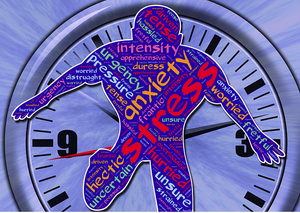 With this understanding, it is still important to appreciate the wide variety of stressors that can be challenging our health. Too often when we use the word stress, people jump to the assumption that what we mean is that something is emotionally uncomfortable. Yes, that is undoubtedly a stressor, but there could be 99 other things causing the stress. Let’s start with one everyone can relate to, pain. Pain is stressful, mainly when there is nothing you can do about it. When you are in pain your brain does not work as well; you get short-tempered; your immune system tanks; your digestion shuts down; and, you can’t get good sleep. In short, stress from pain messes up your health all over the place. Anyone who has been in acute pain knows how stressful it can be, but how often do folks think of pain when someone says they are stressed?
With this understanding, it is still important to appreciate the wide variety of stressors that can be challenging our health. Too often when we use the word stress, people jump to the assumption that what we mean is that something is emotionally uncomfortable. Yes, that is undoubtedly a stressor, but there could be 99 other things causing the stress. Let’s start with one everyone can relate to, pain. Pain is stressful, mainly when there is nothing you can do about it. When you are in pain your brain does not work as well; you get short-tempered; your immune system tanks; your digestion shuts down; and, you can’t get good sleep. In short, stress from pain messes up your health all over the place. Anyone who has been in acute pain knows how stressful it can be, but how often do folks think of pain when someone says they are stressed?
Let us look at several classes of stressors and some examples of each:
- Chemical/physiologic stress
- Dietary stress
- Emotional stress
- Mental stress
- Spiritual stress
- Energetic stress
- Structural stress
On my list, each of these includes about 20 different sources of stress.
 Chemical/physiologic stress: This category contains such favorites as having an infection with a virus, bacteria, fungus, or parasite. This is also the arena for looking at toxic burdens such as pesticide exposure, heavy metal toxicity, and toxic effects from medications and recreational drugs. We also include concerns with both air-born and food allergies as well as the impact of air pollution and mold exposure. Even things like excess exposure to heat or cold or poor quality sleep fall into the physiologic stress realm. Any or all of these are stresses to our systems and can cause ill health. So when a patient tells me they are stressed, I have to consider this whole realm as potentially the cause of their symptoms.
Chemical/physiologic stress: This category contains such favorites as having an infection with a virus, bacteria, fungus, or parasite. This is also the arena for looking at toxic burdens such as pesticide exposure, heavy metal toxicity, and toxic effects from medications and recreational drugs. We also include concerns with both air-born and food allergies as well as the impact of air pollution and mold exposure. Even things like excess exposure to heat or cold or poor quality sleep fall into the physiologic stress realm. Any or all of these are stresses to our systems and can cause ill health. So when a patient tells me they are stressed, I have to consider this whole realm as potentially the cause of their symptoms.
 Dietary stress: Food is definitely a big cause of symptoms in the body. How well you digest your food directly affects such things as back pain. This category includes a boatload of dietary indiscretions such as too much sugar, fried foods, inflammatory foods, food chemicals, and so on. We can also look at deficiency syndromes such as vitamin and mineral deficiencies, protein deficiencies, and fiber deficiencies. Let’s not forget how well you are able to digest your food, your enzyme production, your HCl production, over or under-eating, and insufficient mastication. Even eating while stressed will cause more stress.
Dietary stress: Food is definitely a big cause of symptoms in the body. How well you digest your food directly affects such things as back pain. This category includes a boatload of dietary indiscretions such as too much sugar, fried foods, inflammatory foods, food chemicals, and so on. We can also look at deficiency syndromes such as vitamin and mineral deficiencies, protein deficiencies, and fiber deficiencies. Let’s not forget how well you are able to digest your food, your enzyme production, your HCl production, over or under-eating, and insufficient mastication. Even eating while stressed will cause more stress.
 Emotional stress: Obviously being highly upset about something puts stress on your body. It triggers a fight or flight response from the body which causes a flood of adrenaline and cortisol into your bloodstream. Your body can handle this for a few minutes at a time, but over hours or days, it really messes with your health. But more often than not emotional stressors hide under the surface, often so deep that you don’t even recognize them without deep introspection. These hidden emotional stressors are even more likely to cause physical symptoms than overt noisy stressors because the suppression of feelings generates imbalances in numerous body systems.
Emotional stress: Obviously being highly upset about something puts stress on your body. It triggers a fight or flight response from the body which causes a flood of adrenaline and cortisol into your bloodstream. Your body can handle this for a few minutes at a time, but over hours or days, it really messes with your health. But more often than not emotional stressors hide under the surface, often so deep that you don’t even recognize them without deep introspection. These hidden emotional stressors are even more likely to cause physical symptoms than overt noisy stressors because the suppression of feelings generates imbalances in numerous body systems.
 Examples of such stressors include chronic worry, self-criticism, relationship troubles, fears and phobias, gender issues, work stress, money and taxes, perfectionist tendencies, guilt, self-worth, and parenting issues; the list goes on and on. These issues may be huge and in your face all the time or they may show up as chronic muscle tension or maybe digestive issues. Every state of stress will have certain muscle tension patterns associated with it. The Chiropractic field of Applied Kinesiology charted these relationships 60 years ago by noticing which acupuncture meridians affected which muscles. Each acupuncture meridian has specific emotional drivers that affect it which in turn affect the different muscles.
Examples of such stressors include chronic worry, self-criticism, relationship troubles, fears and phobias, gender issues, work stress, money and taxes, perfectionist tendencies, guilt, self-worth, and parenting issues; the list goes on and on. These issues may be huge and in your face all the time or they may show up as chronic muscle tension or maybe digestive issues. Every state of stress will have certain muscle tension patterns associated with it. The Chiropractic field of Applied Kinesiology charted these relationships 60 years ago by noticing which acupuncture meridians affected which muscles. Each acupuncture meridian has specific emotional drivers that affect it which in turn affect the different muscles.
 Mental Stress: Thought and feeling originate from different areas of the brain, and each has its own category of imbalances. Aberrated thought patterns are powerful sources of chronic stress within the body. Immature attitudes, beliefs, and superstitions generate all sorts of stress. Negative habits, unrealistic expectations, faulty logic, information overload, poor time management, conflicting desires, and general poor life-skill development build up baskets full of stress.
Mental Stress: Thought and feeling originate from different areas of the brain, and each has its own category of imbalances. Aberrated thought patterns are powerful sources of chronic stress within the body. Immature attitudes, beliefs, and superstitions generate all sorts of stress. Negative habits, unrealistic expectations, faulty logic, information overload, poor time management, conflicting desires, and general poor life-skill development build up baskets full of stress.
 What really kills us is having dozens of different stressors all running at the same time. This really confuses the body. The body likes a simple concern and a simple direct action to resolve the concern. Modern life rarely provides us with this simplicity. Our stress responses were designed for a time when we either fought it, ran away from it, hid from it, ate it, or had sex with it to resolve stress. Otherwise, we were chill and relaxing on the savanna. As human life got more complex, more and more of the brain got involved with processing our survival needs. For instance, there are 44 brain regions that weigh in on deciding whether something we feel is painful or not. Pain is not in the body; it is a decision made in the brain. These days the brain often misinterprets and labels sensations as pain when there is no threat involved. The purpose of pain is to warn us of an immediate threat to our health. Chronic pain usually is this sort of misinterpretation driven by an overriding fear.
What really kills us is having dozens of different stressors all running at the same time. This really confuses the body. The body likes a simple concern and a simple direct action to resolve the concern. Modern life rarely provides us with this simplicity. Our stress responses were designed for a time when we either fought it, ran away from it, hid from it, ate it, or had sex with it to resolve stress. Otherwise, we were chill and relaxing on the savanna. As human life got more complex, more and more of the brain got involved with processing our survival needs. For instance, there are 44 brain regions that weigh in on deciding whether something we feel is painful or not. Pain is not in the body; it is a decision made in the brain. These days the brain often misinterprets and labels sensations as pain when there is no threat involved. The purpose of pain is to warn us of an immediate threat to our health. Chronic pain usually is this sort of misinterpretation driven by an overriding fear.
 Structural stress: These stressors are the favorite types of Chiropractors. They include such things as physical trauma, poor ergonomics, bad posture, poor muscle tone, abnormal joint motion, poor balance, weak ligaments, foot and knee problems, scars and adhesions, lymphatic congestion, poor circulation, TMJ issues, nerve inflammation, neurological issues, and many more. Any of you who have experienced back pain or neck pain know how stressful it is. You can’t sit, you can’t sleep, and you can’t get comfortable anywhere.
Structural stress: These stressors are the favorite types of Chiropractors. They include such things as physical trauma, poor ergonomics, bad posture, poor muscle tone, abnormal joint motion, poor balance, weak ligaments, foot and knee problems, scars and adhesions, lymphatic congestion, poor circulation, TMJ issues, nerve inflammation, neurological issues, and many more. Any of you who have experienced back pain or neck pain know how stressful it is. You can’t sit, you can’t sleep, and you can’t get comfortable anywhere.
 Energetic stress: This is usually a little more subtle as it deals with such things as radiation exposure, electromagnetic pollution, too much or too little sunlight, noise pollution, and too much time on the computer. Nevertheless, these can be serious sources of stress for sensitive people.
Energetic stress: This is usually a little more subtle as it deals with such things as radiation exposure, electromagnetic pollution, too much or too little sunlight, noise pollution, and too much time on the computer. Nevertheless, these can be serious sources of stress for sensitive people.
 Spiritual stress: This generic term refers to such things as ethical dilemmas, lack of purpose and meaning in life, conflict with “what is,” narcissism, isolation/non-participation, and lack of connection to something larger than self. While these concerns may be of little importance to some people, others may be consumed by them.
Spiritual stress: This generic term refers to such things as ethical dilemmas, lack of purpose and meaning in life, conflict with “what is,” narcissism, isolation/non-participation, and lack of connection to something larger than self. While these concerns may be of little importance to some people, others may be consumed by them.
 The goal of this newsletter is to open your eyes to just how many different kinds of stress we may be dealing with every day. Stress is a much bigger beast than deadlines at work or a fight with your loved one at home. Stress comes in so many flavors and forms. Stress is a smorgasbord opportunity to pig out on misery, and all of this misery impacts our bodies and health. Reducing stress means so many different choices to make and so many different life skills to learn. It is not an easy or quick process. But it is like the answer to the old riddle “how do you eat an elephant?” Answer: “One bite at a time!“
The goal of this newsletter is to open your eyes to just how many different kinds of stress we may be dealing with every day. Stress is a much bigger beast than deadlines at work or a fight with your loved one at home. Stress comes in so many flavors and forms. Stress is a smorgasbord opportunity to pig out on misery, and all of this misery impacts our bodies and health. Reducing stress means so many different choices to make and so many different life skills to learn. It is not an easy or quick process. But it is like the answer to the old riddle “how do you eat an elephant?” Answer: “One bite at a time!“
Take care,
David
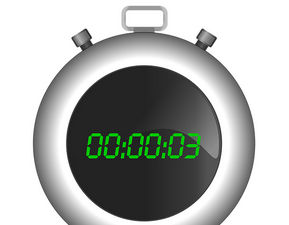 3 second workouts?
3 second workouts?
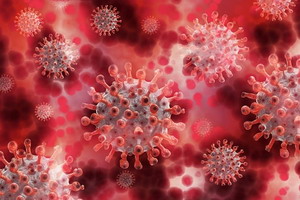 Covid breath test being developed
Covid breath test being developed
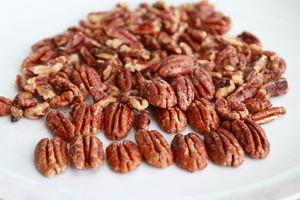 Pecans the new superfood
Pecans the new superfood
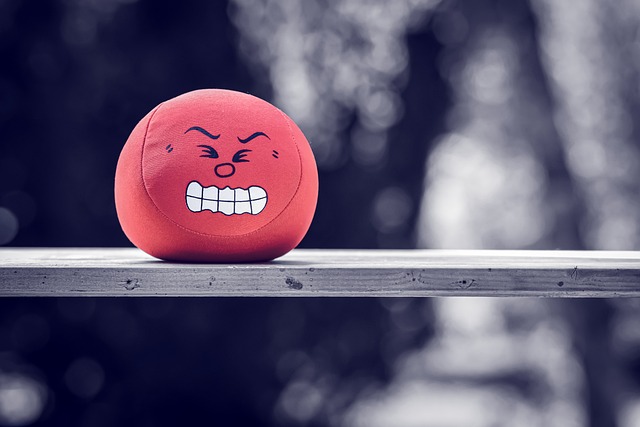
 Stress is a popular word that gets tossed around a lot these days. It gets this press because so much research has been done that says stress is the underlying cause of so much ill health. When you try to pin down just what is stress, everybody seems to have a different answer. This is for good reason. There are hundreds of kinds of stress and hundreds of different kinds of challenges to our healthy functioning which we may not be adapting to well. Stress is the dis-ease in our body/mind when we are not handling life easily. This is not necessarily a bad thing. Take, for example, your muscles being stressed while lifting a heavy weight. In fact, such stress is vital to our health. Without challenge, our body gets progressively weaker. The problem is when the challenge is greater than we are able to overcome. This is the stress that takes down our health.
Stress is a popular word that gets tossed around a lot these days. It gets this press because so much research has been done that says stress is the underlying cause of so much ill health. When you try to pin down just what is stress, everybody seems to have a different answer. This is for good reason. There are hundreds of kinds of stress and hundreds of different kinds of challenges to our healthy functioning which we may not be adapting to well. Stress is the dis-ease in our body/mind when we are not handling life easily. This is not necessarily a bad thing. Take, for example, your muscles being stressed while lifting a heavy weight. In fact, such stress is vital to our health. Without challenge, our body gets progressively weaker. The problem is when the challenge is greater than we are able to overcome. This is the stress that takes down our health. With this understanding, it is still important to appreciate the wide variety of stressors that can be challenging our health. Too often when we use the word stress, people jump to the assumption that what we mean is that something is emotionally uncomfortable. Yes, that is undoubtedly a stressor, but there could be 99 other things causing the stress. Let’s start with one everyone can relate to, pain. Pain is stressful, mainly when there is nothing you can do about it. When you are in pain your brain does not work as well; you get short-tempered; your immune system tanks; your digestion shuts down; and, you can’t get good sleep. In short, stress from pain messes up your health all over the place. Anyone who has been in acute pain knows how stressful it can be, but how often do folks think of pain when someone says they are stressed?
With this understanding, it is still important to appreciate the wide variety of stressors that can be challenging our health. Too often when we use the word stress, people jump to the assumption that what we mean is that something is emotionally uncomfortable. Yes, that is undoubtedly a stressor, but there could be 99 other things causing the stress. Let’s start with one everyone can relate to, pain. Pain is stressful, mainly when there is nothing you can do about it. When you are in pain your brain does not work as well; you get short-tempered; your immune system tanks; your digestion shuts down; and, you can’t get good sleep. In short, stress from pain messes up your health all over the place. Anyone who has been in acute pain knows how stressful it can be, but how often do folks think of pain when someone says they are stressed? Chemical/physiologic stress: This category contains such favorites as having an infection with a virus, bacteria, fungus, or parasite. This is also the arena for looking at toxic burdens such as pesticide exposure, heavy metal toxicity, and toxic effects from medications and recreational drugs. We also include concerns with both air-born and food allergies as well as the impact of air pollution and mold exposure. Even things like excess exposure to heat or cold or poor quality sleep fall into the physiologic stress realm. Any or all of these are stresses to our systems and can cause ill health. So when a patient tells me they are stressed, I have to consider this whole realm as potentially the cause of their symptoms.
Chemical/physiologic stress: This category contains such favorites as having an infection with a virus, bacteria, fungus, or parasite. This is also the arena for looking at toxic burdens such as pesticide exposure, heavy metal toxicity, and toxic effects from medications and recreational drugs. We also include concerns with both air-born and food allergies as well as the impact of air pollution and mold exposure. Even things like excess exposure to heat or cold or poor quality sleep fall into the physiologic stress realm. Any or all of these are stresses to our systems and can cause ill health. So when a patient tells me they are stressed, I have to consider this whole realm as potentially the cause of their symptoms. Dietary stress: Food is definitely a big cause of symptoms in the body. How well you digest your food directly affects such things as back pain. This category includes a boatload of dietary indiscretions such as too much sugar, fried foods, inflammatory foods, food chemicals, and so on. We can also look at deficiency syndromes such as vitamin and mineral deficiencies, protein deficiencies, and fiber deficiencies. Let’s not forget how well you are able to digest your food, your enzyme production, your HCl production, over or under-eating, and insufficient mastication. Even eating while stressed will cause more stress.
Dietary stress: Food is definitely a big cause of symptoms in the body. How well you digest your food directly affects such things as back pain. This category includes a boatload of dietary indiscretions such as too much sugar, fried foods, inflammatory foods, food chemicals, and so on. We can also look at deficiency syndromes such as vitamin and mineral deficiencies, protein deficiencies, and fiber deficiencies. Let’s not forget how well you are able to digest your food, your enzyme production, your HCl production, over or under-eating, and insufficient mastication. Even eating while stressed will cause more stress. Emotional stress: Obviously being highly upset about something puts stress on your body. It triggers a fight or flight response from the body which causes a flood of adrenaline and cortisol into your bloodstream. Your body can handle this for a few minutes at a time, but over hours or days, it really messes with your health. But more often than not emotional stressors hide under the surface, often so deep that you don’t even recognize them without deep introspection. These hidden emotional stressors are even more likely to cause physical symptoms than overt noisy stressors because the suppression of feelings generates imbalances in numerous body systems.
Emotional stress: Obviously being highly upset about something puts stress on your body. It triggers a fight or flight response from the body which causes a flood of adrenaline and cortisol into your bloodstream. Your body can handle this for a few minutes at a time, but over hours or days, it really messes with your health. But more often than not emotional stressors hide under the surface, often so deep that you don’t even recognize them without deep introspection. These hidden emotional stressors are even more likely to cause physical symptoms than overt noisy stressors because the suppression of feelings generates imbalances in numerous body systems. Examples of such stressors include chronic worry, self-criticism, relationship troubles, fears and phobias, gender issues, work stress, money and taxes, perfectionist tendencies, guilt, self-worth, and parenting issues; the list goes on and on. These issues may be huge and in your face all the time or they may show up as chronic muscle tension or maybe digestive issues. Every state of stress will have certain muscle tension patterns associated with it. The Chiropractic field of Applied Kinesiology charted these relationships 60 years ago by noticing which acupuncture meridians affected which muscles. Each acupuncture meridian has specific emotional drivers that affect it which in turn affect the different muscles.
Examples of such stressors include chronic worry, self-criticism, relationship troubles, fears and phobias, gender issues, work stress, money and taxes, perfectionist tendencies, guilt, self-worth, and parenting issues; the list goes on and on. These issues may be huge and in your face all the time or they may show up as chronic muscle tension or maybe digestive issues. Every state of stress will have certain muscle tension patterns associated with it. The Chiropractic field of Applied Kinesiology charted these relationships 60 years ago by noticing which acupuncture meridians affected which muscles. Each acupuncture meridian has specific emotional drivers that affect it which in turn affect the different muscles. Mental Stress: Thought and feeling originate from different areas of the brain, and each has its own category of imbalances. Aberrated thought patterns are powerful sources of chronic stress within the body. Immature attitudes, beliefs, and superstitions generate all sorts of stress. Negative habits, unrealistic expectations, faulty logic, information overload, poor time management, conflicting desires, and general poor life-skill development build up baskets full of stress.
Mental Stress: Thought and feeling originate from different areas of the brain, and each has its own category of imbalances. Aberrated thought patterns are powerful sources of chronic stress within the body. Immature attitudes, beliefs, and superstitions generate all sorts of stress. Negative habits, unrealistic expectations, faulty logic, information overload, poor time management, conflicting desires, and general poor life-skill development build up baskets full of stress. What really kills us is having dozens of different stressors all running at the same time. This really confuses the body. The body likes a simple concern and a simple direct action to resolve the concern. Modern life rarely provides us with this simplicity. Our stress responses were designed for a time when we either fought it, ran away from it, hid from it, ate it, or had sex with it to resolve stress. Otherwise, we were chill and relaxing on the savanna. As human life got more complex, more and more of the brain got involved with processing our survival needs. For instance, there are 44 brain regions that weigh in on deciding whether something we feel is painful or not. Pain is not in the body; it is a decision made in the brain. These days the brain often misinterprets and labels sensations as pain when there is no threat involved. The purpose of pain is to warn us of an immediate threat to our health. Chronic pain usually is this sort of misinterpretation driven by an overriding fear.
What really kills us is having dozens of different stressors all running at the same time. This really confuses the body. The body likes a simple concern and a simple direct action to resolve the concern. Modern life rarely provides us with this simplicity. Our stress responses were designed for a time when we either fought it, ran away from it, hid from it, ate it, or had sex with it to resolve stress. Otherwise, we were chill and relaxing on the savanna. As human life got more complex, more and more of the brain got involved with processing our survival needs. For instance, there are 44 brain regions that weigh in on deciding whether something we feel is painful or not. Pain is not in the body; it is a decision made in the brain. These days the brain often misinterprets and labels sensations as pain when there is no threat involved. The purpose of pain is to warn us of an immediate threat to our health. Chronic pain usually is this sort of misinterpretation driven by an overriding fear. Structural stress: These stressors are the favorite types of Chiropractors. They include such things as physical trauma, poor ergonomics, bad posture, poor muscle tone, abnormal joint motion, poor balance, weak ligaments, foot and knee problems, scars and adhesions, lymphatic congestion, poor circulation, TMJ issues, nerve inflammation, neurological issues, and many more. Any of you who have experienced back pain or neck pain know how stressful it is. You can’t sit, you can’t sleep, and you can’t get comfortable anywhere.
Structural stress: These stressors are the favorite types of Chiropractors. They include such things as physical trauma, poor ergonomics, bad posture, poor muscle tone, abnormal joint motion, poor balance, weak ligaments, foot and knee problems, scars and adhesions, lymphatic congestion, poor circulation, TMJ issues, nerve inflammation, neurological issues, and many more. Any of you who have experienced back pain or neck pain know how stressful it is. You can’t sit, you can’t sleep, and you can’t get comfortable anywhere. Energetic stress: This is usually a little more subtle as it deals with such things as radiation exposure, electromagnetic pollution, too much or too little sunlight, noise pollution, and too much time on the computer. Nevertheless, these can be serious sources of stress for sensitive people.
Energetic stress: This is usually a little more subtle as it deals with such things as radiation exposure, electromagnetic pollution, too much or too little sunlight, noise pollution, and too much time on the computer. Nevertheless, these can be serious sources of stress for sensitive people. Spiritual stress: This generic term refers to such things as ethical dilemmas, lack of purpose and meaning in life, conflict with “what is,” narcissism, isolation/non-participation, and lack of connection to something larger than self. While these concerns may be of little importance to some people, others may be consumed by them.
Spiritual stress: This generic term refers to such things as ethical dilemmas, lack of purpose and meaning in life, conflict with “what is,” narcissism, isolation/non-participation, and lack of connection to something larger than self. While these concerns may be of little importance to some people, others may be consumed by them. The goal of this newsletter is to open your eyes to just how many different kinds of stress we may be dealing with every day. Stress is a much bigger beast than deadlines at work or a fight with your loved one at home. Stress comes in so many flavors and forms. Stress is a smorgasbord opportunity to pig out on misery, and all of this misery impacts our bodies and health. Reducing stress means so many different choices to make and so many different life skills to learn. It is not an easy or quick process. But it is like the answer to the old riddle “how do you eat an elephant?” Answer: “One bite at a time!“
The goal of this newsletter is to open your eyes to just how many different kinds of stress we may be dealing with every day. Stress is a much bigger beast than deadlines at work or a fight with your loved one at home. Stress comes in so many flavors and forms. Stress is a smorgasbord opportunity to pig out on misery, and all of this misery impacts our bodies and health. Reducing stress means so many different choices to make and so many different life skills to learn. It is not an easy or quick process. But it is like the answer to the old riddle “how do you eat an elephant?” Answer: “One bite at a time!“